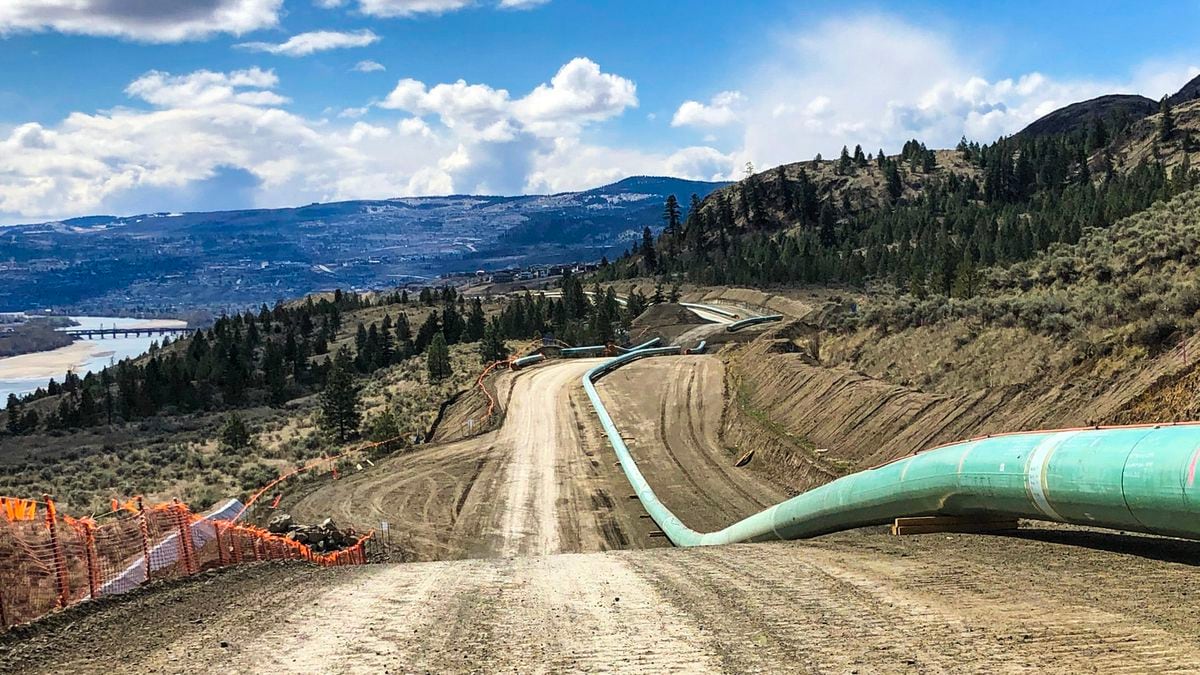Work on the Trans Mountain pipeline expansion (in the Canadian province of British Columbia) has been suspended for four months. The decision, made by the federal Department of the Environment, is due to an officer confirming that at least eight hummingbird nests near the city of Burnaby are threatened by construction activity. The official’s visit came following accusations of environmentalists. The provision will be in effect until August 20, when the nesting season is over.
The Order in Council, issued on April 16, is supported by the Migratory Birds Act, established by the Canadian Parliament in 1917 and updated in 1994. This rule states that unless specific regulations are implemented, “Nests cannot be damaged, destroyed, disturbed or removed” and even if the species is not in danger of extinction. Not only Ana’s hummingbirds (calgypt anna) live in these forests, also song sparrows and blackbirds, among other birds, frequent the foliage.
“Because it is the nesting season, migratory birds are particularly vulnerable at this time,” said the Canadian Department of the Environment in a press release. The ministry specified the damage that these nests would suffer as a result of “the felling of vegetation and trees, or other disruptive activities such as digging, the use of chainsaws or heavy machinery”, recalling the aspects that the law defends on migratory birds.
The Trans Mountain pipeline has been in operation since 1953. It remains to this day the only pipeline that transports oil from the province of Alberta to the coast of British Columbia. Justin Trudeau’s government approved its expansion in November 2016, but under certain conditions. In May 2018, Trudeau announced his nationalization: some 4.5 billion Canadian dollars (3 billion euros at the time) paid to the company Kinder Morgan.
Despite criticism from environmentalists and Indigenous communities, Trudeau definitively authorized the expansion project in June 2019, with the goal of tripling the crude shipping capacity (approximately 900,000 barrels per day once construction is complete). He did so a day after declaring a climate emergency in Canada, receiving strong criticism in the country. The Canadian Prime Minister stressed that it is possible to find a balance between economic development and environmental protection.
Appeals filed by opponents of the Trans Mountain expansion have failed in court. Nest protection slows the progress of this project for at least four months. According to the most recent estimates, the work will have a total cost of 12.6 billion Canadian dollars (8.46 billion euros).
The Trudeau government is confident in the economic benefits of Trans Mountain’s expansion. This initiative became more relevant following President Joe Biden’s executive order, signed in late January, regarding the termination of building and operating permits for Keystone XL. This pipeline was intended to send Canadian crude to American refineries. On April 21, Canada pledged to reduce its greenhouse gas emissions between 40% and 45% by 2030, compared to 2005 levels.
You can follow CLIMA ET ENVIRONNEMENT on Facebook and Twitter, or subscribe here to receive our weekly newsletter

“Amateur web enthusiast. Award-winning creator. Extreme music expert. Wannabe analyst. Organizer. Hipster-friendly tv scholar. Twitter guru.”
